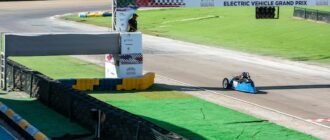Workshops at the complex educate by creating an inclusive environment
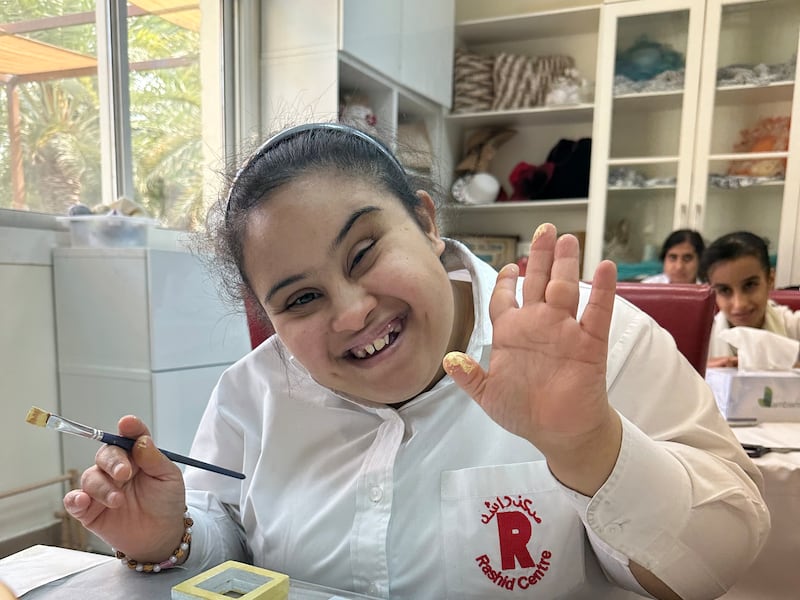
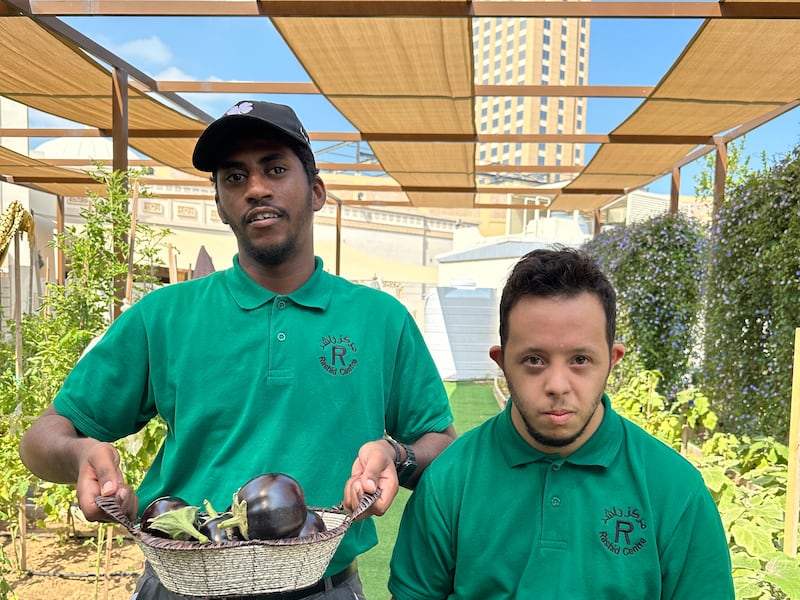
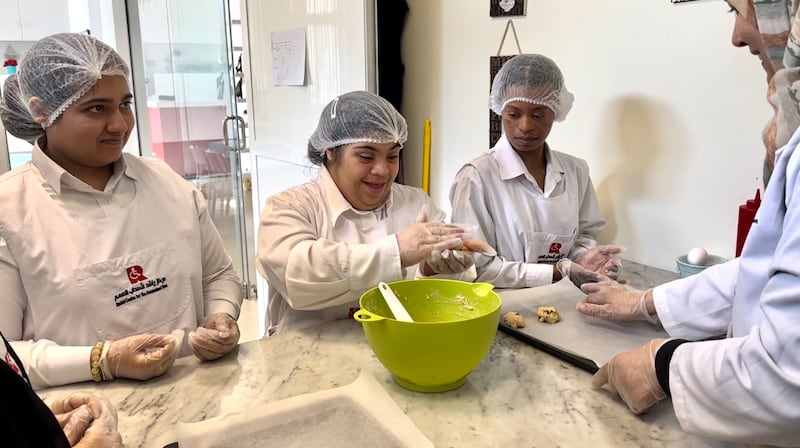
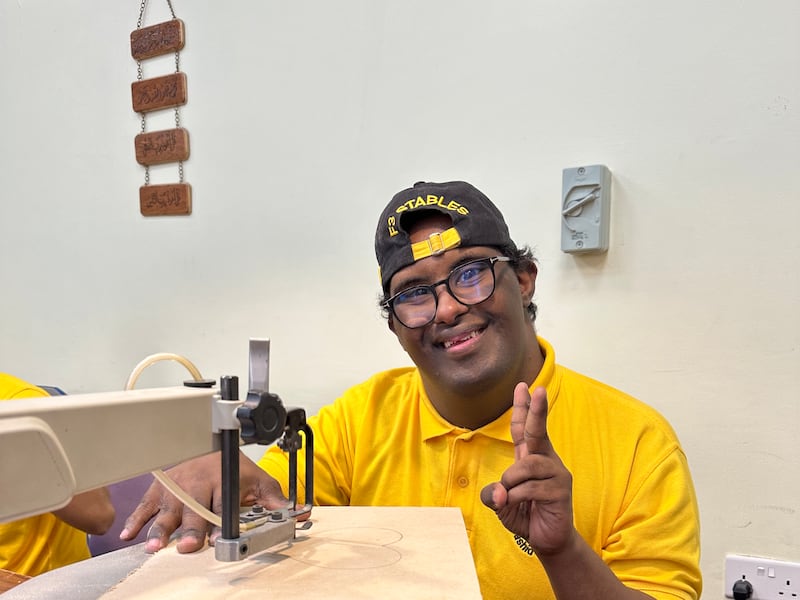
. Listen In EnglishListen in ArabicPowered by automated translation
The Rashid Centre for People of Determination in Dubai integrates education, rehabilitation, and vocational training to support personal development and career growth.
The centre caters for 290 students of all ages, with a range of courses for adults that adhere to the Community Development Authority’s requirement that students transition from a school setting at the age of 18.
With options in gardening, photography, carpentry, printing, and textile and baking specifically for girls, the centre provides every student with a path to follow, blending the familiarity of their environment with new experiences and skills.
Students in the gardening workshop participate in everything from planting seeds to picking out vegetables, while leftover waste is used to feed the animals kept on the centre’s small farm.
Students enjoy workshops at the Rashid Centre for People Of Determination
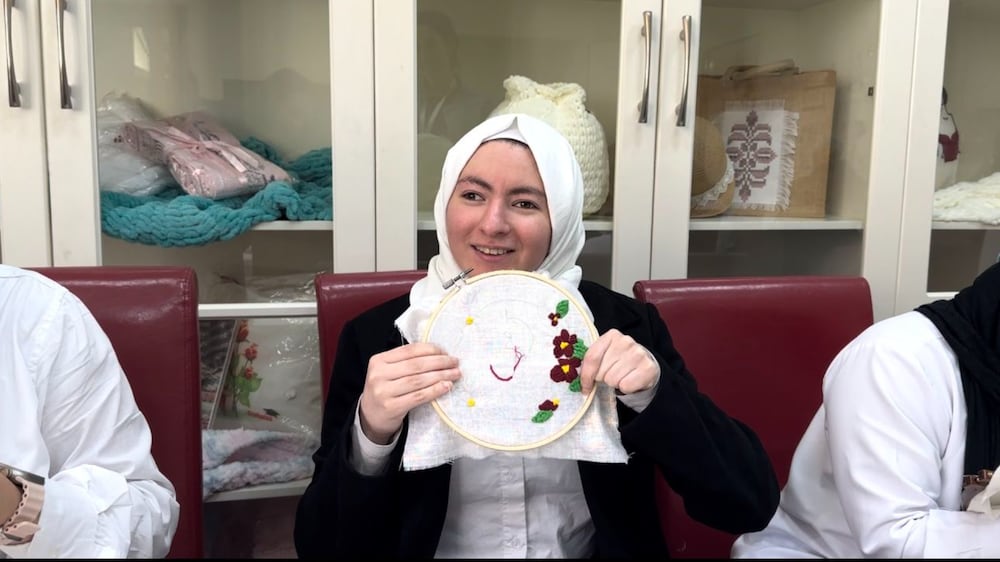
Aya Othman Agha, 28, a student in the textile workshop, is committed to pursuing her passion further after leaving the centre.
“God gave me my hobby and talent and I love to make things and to make something with my life that is beneficial,” Miss Agha told The National.
Students in the baking and textile workshop train their hand-sewing skills by learning stitching and using the sewing machine to produce blankets, bags and many other products.
They also work on textile and mosaic pieces, while the cooking workshop enhances the student’s ability to prepare simple meals without anyone’s help.
The route to independence
The bridge to these workshops is the Asdan vocational programme, a curriculum designed for pupils aged 14 to 18.
Asdan is a preparatory stage that introduces students to many possibilities, including internships and training opportunities such as in hotels and restaurants.
This exposure not only helps students gain practical skills but also opens doors to potential employment.
At the Rashid Centre, moving to a workshop is a significant step. At 18, students undergo an assessment that considers not just their vocational skills but also their independence.
This placement ensures students are matched with workshops that align with their abilities and interests, to create an environment where they can continue to grow and develop.
Despite its comprehensive approach, the Rashid Centre is clear about its limitations. While it cannot guarantee employment, it seeks support from its network of partners to help students find jobs.
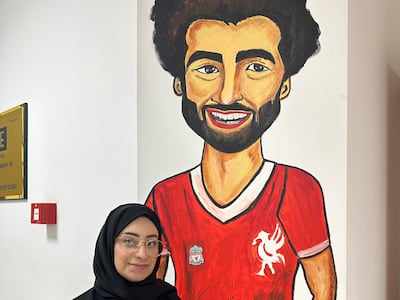
Kawka Mohsen standing in front of her mural of Mohamed Sarah that is signed by him. Photo: Rana Afifi
Kawka Mohsen, 37, from Yemen, joined the centre when she was 14 and was later hired as an assistant art teacher.
“Painting makes me happy and I don’t feel tired when I paint. I can paint all day,” Ms Mohsen told The National.
“Art is my life, I was born to become an artist.”
Role models
Guidance in these workshops comes from experts who provide instruction and support, ensuring that students are continuously learning and adapting.
The centre’s philosophy is one of lifelong learning, where there is always a skill to master and a challenge to overcome.
Head teacher Lina Abbas believes the workshops allow students to grow as independent individuals.
We prioritise inclusivity and accessibility here by including the students in everything we doLina Abbas
“In the workshop, they get to discover themselves and understand how important they are by being productive instead of being isolated,” she told The National.
“The students take part in competitions and participate in events where they get to showcase their work and be recognised and appreciated.
“We prioritise inclusivity and accessibility here by including the students in everything we do, like including them in extra-curricular activities and by following the same routine of any school to help them become part of society.
“We always face challenges here in the centre. The students themselves are the challenge.
“But we always work on finding a solution by working as a team. It’s never a one-man show.”
In practice
The workshops are connected to the Rashid Souq, where products created by the students are sold.
This initiative provides a practical application for their skills and teaches them about responsibility and the satisfaction of seeing their work valued by the community.
Most of the carpentry workshop projects are displayed and used in the centre like chairs, tissue boxes, trophies, tables and decorative materials.
Students in the printing workshop take part in printing the centre’s magazine, called ‘Rashid Magazine’, and also work on data entry.
READ MOREUAE schools limit mobile phone use to remove 'unwelcome distraction'
For students with very limited abilities, the Rashid Centre has created an independent unit focused on basic life skills and education.
This aims to ensure that every student, regardless of their ability, receives the care and education they deserve.
The academic curriculum caters to both English and Arabic speakers and it’s tailored to meet the students’ needs, so they can receive an education that matches their ability in a way that helps them grow.
Students are grouped based on their academic and cognitive skills, with the centre operating on a standard school calendar.
Updated: March 22, 2024, 12:11 PM





